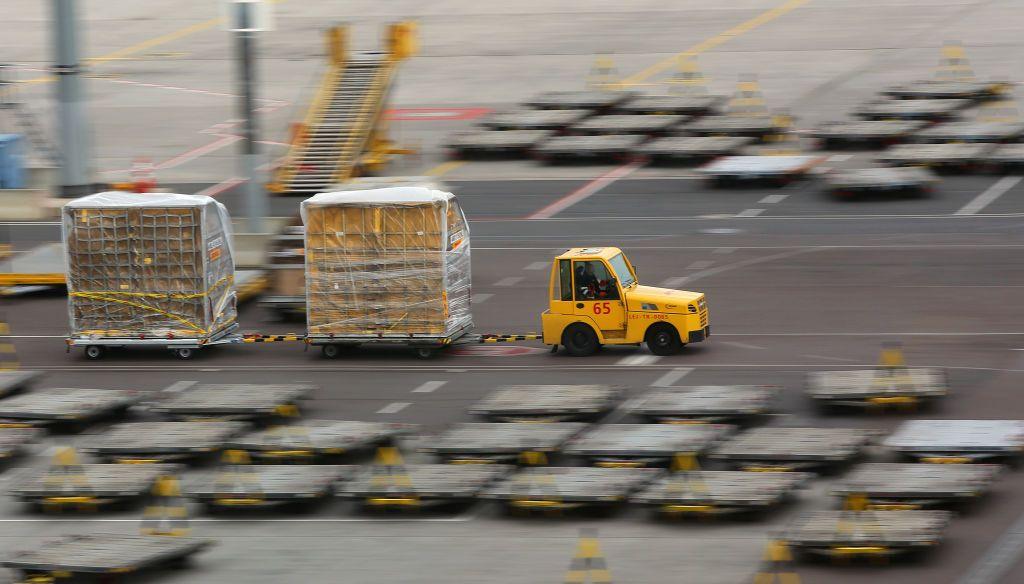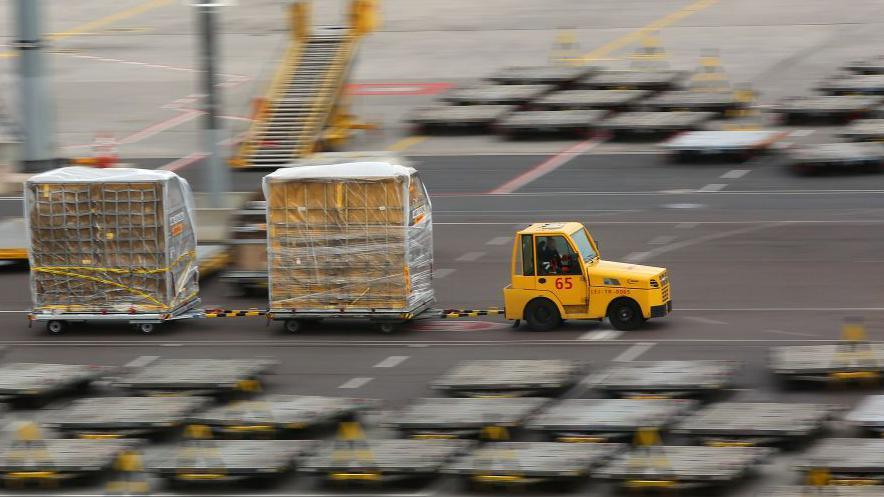Lithuania charges 15 over alleged Russian-backed parcel bombs

- Published
Fifteen people have been charged with terrorism offences in Lithuania over the alleged Russian-backed detonation of parcels in Germany, Poland and the UK, prosecutors say.
The suspects are accused of using delivery companies DHL and DPD to send four packages of explosives hidden in cosmetics containers from the Lithuanian capital Vilnius.
Fires broke out in Germany, Poland and the UK in July last year, while the fourth parcel failed to ignite due to a malfunction.
Lithuanian investigators say the plot was coordinated by individuals with links to Russian military intelligence services, and have previously said they were dry runs aimed at sabotaging flights to the US and Canada.
Russia has not yet responded to the latest statement, but has denied repeated allegations by Nato countries that its secret services are engaged in sabotage operations across Europe.
The parcels had contained explosive devices that were set off by electronic timers hidden in vibrating massage pillows, according to a joint statement by Lithuania's general prosecution service and criminal police.
Explosives were found during the investigation and 15 people have been charged, including citizens of Russia, Lithuania, Latvia, Estonia and Ukraine, the statement said. It is unclear how many of them are in custody.
The statement identified men who are also accused of being behind an arson attack on an Ikea furniture store in the Lithuanian capital last year.
"It was determined that the aforementioned individuals acted in an organised manner, adhering to a very strict conspiracy, dividing individual tasks," the statement read.
In July last year, fires broke out in a container due to be loaded on to a DHL cargo plane in the German city of Leipzig, at a transport company near Warsaw, and at Minworth near Birmingham, UK, involving a package described as an incendiary device.
Western security officials told US media at the time that they believed the fires were part of an orchestrated campaign by Russia's military intelligence agency, the GRU.
- Published6 November 2024
